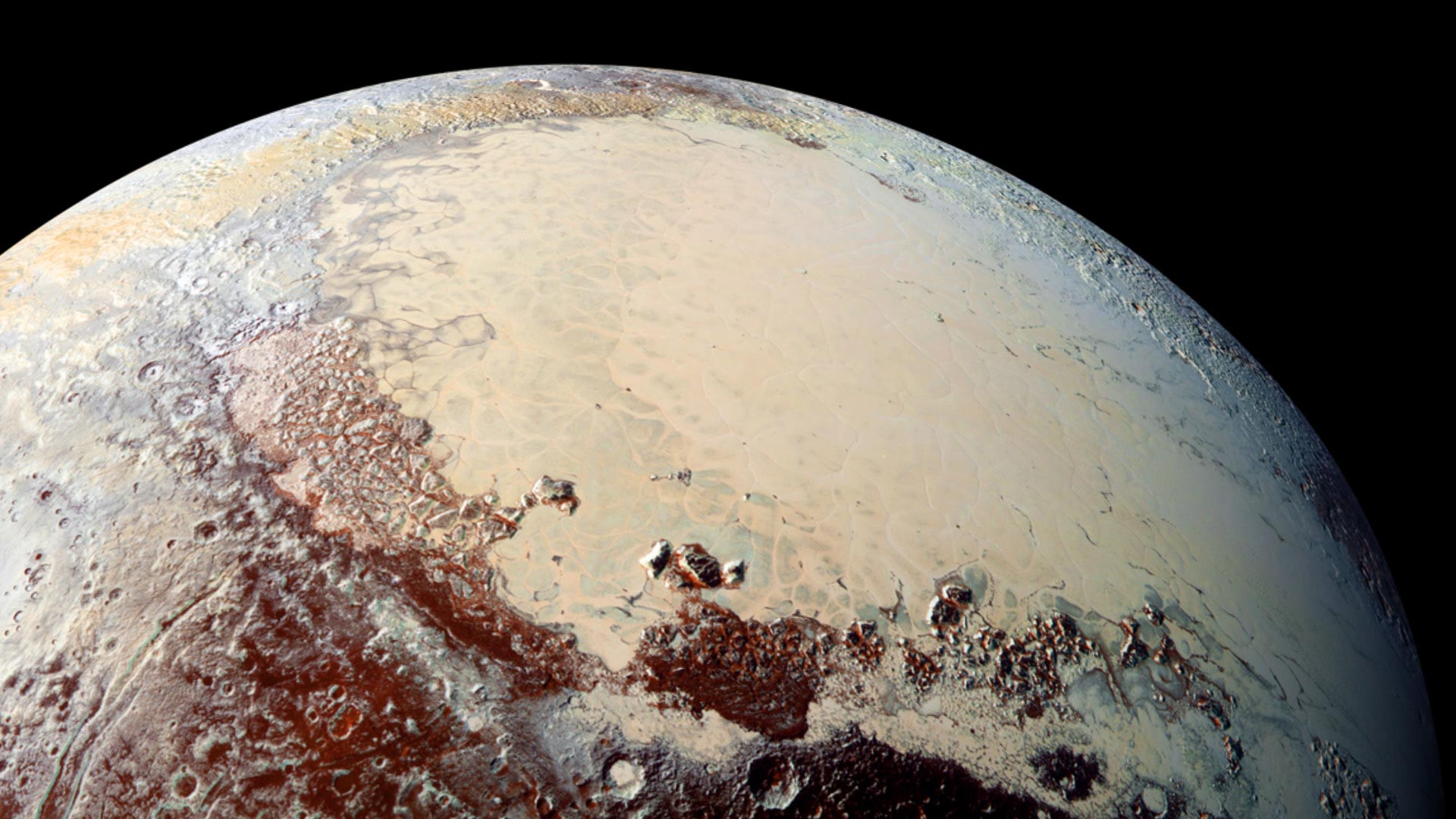 New Horizons captured this image of Pluto's glacial ice cap in July 2015.
New Horizons captured this image of Pluto's glacial ice cap in July 2015.
Astronomers voted on the definition of a planet in 2006 and Pluto didn’t make the cut.
Now some scientists are suggesting a simpler and much more inclusive definition, including a planetary scientist at Flagstaff's Lowell Observatory, where Pluto was discovered in 1930.
The proposed definition is: “planets are round objects in space smaller than stars.” That would include not only Pluto, but also Earth’s Moon, Titan, Europa and some asteroids.
Will Grundy, planetary scientist at Flagstaff’s Lowell Observatory, is one of the authors of the proposal.
“In total, we count up a little over 100 objects that would probably qualify, and there’s probably more to be discovered,” Grundy said.
Astronomer Gerard van Belle said the new language is a good idea, and the definition voted on in 2006 focused too much on a planet’s interactions with other objects and leaves out exoplanets that orbit other stars. The revised definition solves those problems.
“This is one of those things that makes it a fairly simple thing to describe, and it makes sense to a four year old, and if the definition doesn’t make sense at that age than maybe it’s a little too complicated,” van Belle said.
The idea will be presented at a planetary science conference this month. It is meant to generate discussion among scientists and will not set in motion a formal vote.

By submitting your comments, you hereby give AZPM the right to post your comments and potentially use them in any other form of media operated by this institution.